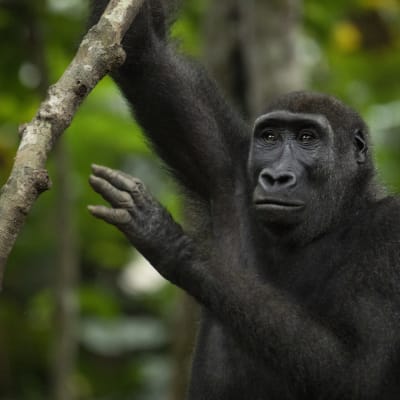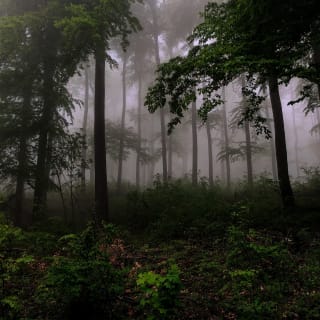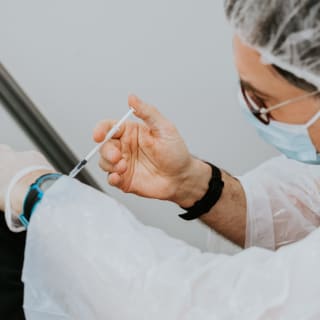
Safety in the Republic of Congo
What You Should Know for Your Trip
What You Should Know for Your Trip
The Republic of the Congo offers fascinating landscapes and unique experiences, but careful preparation is essential to ensure safety during the trip. Compared to the neighboring Democratic Republic of the Congo, the safety situation is considered more stable, but travelers should always remain vigilant. This article provides a comprehensive overview of the safety situation, regional recommendations, and important tips to enable a safe and carefree journey.
Introduction to the Safety Situation in the Republic of the Congo
The safety situation in the Republic of the Congo is generally more stable than in many other countries in Central Africa, especially compared to the neighboring Democratic Republic of the Congo (DR Congo). While travelers in the Republic of the Congo can mostly travel safely with appropriate precautions, the situation in the DR Congo is significantly riskier due to ongoing conflicts, high crime rates, and weak infrastructure.
Comparison of Safety between the Republic of the Congo and the Democratic Republic of the Congo
The Republic of the Congo is characterized by relative political stability, although there can occasionally be demonstrations and unrest in cities like Brazzaville or Pointe-Noire. Travelers should avoid crowds and be particularly vigilant after dark. In contrast, the DR Congo is shaped by a complex political landscape dominated by corruption and fragile state structures. Conflicts regularly escalate, especially in the eastern part of the country, due to clashes with rebel groups such as the M23. These regions are considered particularly dangerous for tourists.
Crime rates also highlight the differences: In the Republic of the Congo, crime is mostly limited to pickpocketing and robberies in urban centers, while the DR Congo poses a significantly higher risk for travelers due to frequent armed robberies and a lack of police presence. Particularly in Kinshasa, there are recurring incidents where perpetrators impersonate security forces.
Additionally, infrastructure plays a crucial role. While the Republic of the Congo has a functioning transport connection at least in urban areas like Brazzaville and Pointe-Noire, dilapidated roads and inadequate infrastructure in the DR Congo complicate safe travel. In many regions of the neighboring country, it is nearly impossible for tourists to move freely without extensive security measures.
Regional Security Assessment and Recommendations
The security situation in the Republic of the Congo is overall tense and varies greatly between different regions. However, some areas are considered relatively safe for travelers, while others should be avoided due to high crime rates, poor infrastructure, and limited police presence.
Safest Regions for Travelers
The safest regions in the Republic of the Congo include Brazzaville, Pointe-Noire, Sibiti, and Owando. Brazzaville, the country's capital, boasts a high police presence and a developing infrastructure. Despite occasional corruption allegations, the city is considered relatively stable due to the presence of government institutions and international organizations. Here, travelers can visit attractions such as the Basilique Sainte-Anne and the Pierre Savorgnan de Brazza Memorial or relax along the Congo River.
Pointe-Noire, as the economic center of the country, has also developed into a relatively safe travel destination. The beaches and the Conkouati-Douli National Park are popular attractions. Although police presence is limited, the economic significance and developing infrastructure provide a degree of stability.
Sibiti and Owando are rural areas with moderate crime rates. Sibiti is known for the Odzala-Kokoua National Park, which offers safaris and nature hikes, while Owando attracts nature lovers with the Lékoli-Pendé National Park and the Owando Mahogany Forest. Both regions offer a peaceful atmosphere, but careful planning is required due to limited infrastructure.
Regions to Avoid
Some regions of the Republic of the Congo pose significant risks for travelers and should be avoided whenever possible. These include Impfondo and Ouesso, where the crime rate is very high and police presence is almost absent. The infrastructure in these areas is also severely underdeveloped, making safe movement difficult. The security situation is also tense in Nkayi and Dolisie, where limited police presence and high crime rates increase the risk for travelers.
Particularly remote areas along the national borders are often affected by armed conflicts or robberies. Regions with inadequate infrastructure and limited access to emergency assistance also present increased security risks.
Recommendations for Travelers
Travelers should inform themselves about the current security situation in their destination region before their visit and observe basic security measures:
- Avoid crowds and demonstrations.
- Avoid traveling after dark.
- Use official taxis and agree on prices in advance.
- Book guided tours, especially in remote areas or national parks.
- Stay away from border regions and regions with known conflicts.
With careful planning and vigilance, travelers can enjoy the cultural and natural highlights of the safe regions of the Republic of the Congo while minimizing risks.
Personal Security Measures for Travelers
Personal safety during a journey to the Republic of the Congo can be significantly enhanced through good preparation and cautious behavior. With the right measures, travelers can minimize many potential risks and enjoy their trip peacefully.
Protecting Personal Safety
Thorough planning before the trip is essential. Travelers should inform themselves about the current security situation and register with their embassy to receive quick support in case of emergencies. In cities like Brazzaville and Pointe-Noire, special vigilance is required as pickpocketing and street crime occur more frequently. It is recommended to avoid public places after dark, not to wear valuable items visibly, and to always stay in busy, well-lit areas.
Interacting with locals requires a respectful but cautious approach. Travelers should observe local customs, dress appropriately, and question excessive offers of help. Drinks or food from strangers should be avoided, and it is advisable to remain polite and cooperative during any checks while being aware of one's rights. In crowds, it is important to stay towards the edge, keep escape routes in mind, and leave the place quickly if signs of unrest appear.
Emergency strategies are also crucial. Registering with the embassy facilitates communication in crisis situations, and important emergency numbers such as the police (117) or fire department (118) should be readily available. Travelers should carry a copy of their passport and only small amounts of cash to avoid larger problems in case of loss or theft. Local contacts like hotel management or tour operators can be helpful in difficult situations.
Luggage Safety and Management
Protecting luggage is an essential aspect of travel safety. Travelers should only take what is necessary and keep their valuables as close to their body as possible. Safe luggage storage in accommodations, such as lockable cabinets or safes, is particularly important. During transportation, especially at airports or on public transportation, it is advisable to keep an eye on the luggage at all times and not to let it out of sight.
When dealing with taxis or other transportation, travelers should be cautious. Since there are no officially registered taxi companies, it is advisable to use hotel taxis or other reliable providers. Money should only be exchanged at official exchange offices, and discretion is essential during cash transactions to avoid drawing attention to oneself.
By following these safety measures and exhibiting foresight, the risk during a trip to the Republic of the Congo can be significantly reduced. Thus, travelers can explore the country with peace of mind and unforgettable experiences.
Official Sources and Safety Advice
For a safe trip to the Republic of the Congo, it is crucial to be fully informed about the current security situation and to consider the advice of relevant official sources. Government websites, embassies, and international organizations like the WHO provide reliable information that can assist travelers in their planning.
Important Safety Advice and Sources
The security situation in the Republic of the Congo requires increased vigilance. Many countries advise against non-essential travel or recommend special caution, especially in urban centers like Brazzaville and Pointe-Noire, where the crime rate is higher. Political demonstrations and civil unrest can occur and escalate into violence. Outside of cities, the infrastructure is often poorly developed, which can complicate travel, especially during the rainy season.
Official sources such as travel advisories from foreign ministries and embassies regularly provide updated information on specific risks in the region. These sources warn, for example, against traveling to border areas and rural regions after dark. Health risks such as malaria and yellow fever are also central issues. A yellow fever vaccination is mandatory for entry, and medication prophylaxis against malaria is strongly recommended.
Additionally, experts recommend obtaining comprehensive travel health insurance with evacuation coverage. Travelers should register with their embassy in advance to be reachable in case of emergencies. Carrying copies of important documents and a well-stocked travel pharmacy is also advisable. By utilizing this official information, travelers can not only minimize potential risks but also be prepared for short-term changes in the security situation.
Legal and Cultural Aspects
A stay in the Republic of the Congo requires compliance with legal requirements as well as a sensitive understanding of local cultural customs. Travelers should inform themselves comprehensively in advance to avoid potential conflicts or misunderstandings.
Relevant Laws for Travelers
Compliance with entry regulations is essential. Visitors need a passport valid for at least six months beyond the planned departure date and a visa that must be applied for in advance at a Congolese embassy or consulate. Visas on arrival are not offered. Additionally, proof of a valid yellow fever vaccination is mandatory.
During the stay, travelers should always carry an official identification document and present it upon request at roadblocks or checkpoints. It is important to follow the instructions of security forces and inquire about a service badge if uncertain. Attempts at bribery, even if suggested by officials, should be strictly avoided as they are punishable by law.
Strict regulations also apply to photography: Government buildings, military facilities, and strategic infrastructure must not be photographed. Violations can result in fines, confiscation of camera equipment, or even arrest. Possession of illegal drugs or prescription medications without proof is also heavily penalized.
Cultural Customs for Safety
Respectful dealings with local customs are crucial for a pleasant stay. Politeness, especially towards older individuals, is highly valued. A handshake with the right hand, accompanied by eye contact, is customary when greeting. Attention should be paid to gestures: Pointing with a finger is considered rude; instead, the open palm should be used.
Travelers should dress modestly, especially outside of cities, where conservative clothing is appropriate. Public criticism of the government or political discussions should be avoided, as these can be interpreted as threats to national security.
By observing these legal and cultural aspects, travelers can conduct their stay safely and respectfully. In case of doubt, it is advisable to consult the embassy or local authorities.
Safe Transport within the Republic of the Congo
Traveling within the Republic of the Congo requires careful planning and the choice of suitable means of transport. Due to security risks and sometimes poor infrastructure, organized tours and domestic flights are considered the safest options. Certain routes also provide a relatively secure basis for travelers if they are well-prepared.
Safe Transportation Means and Routes
Recommended Means of Transport
Organized tours come first when it comes to safe travel options. Local providers with experience in the region use well-planned routes that avoid risky areas. They are ideal for tours to national parks like the Odzala-Kokoua and remote rainforest areas. Domestic flights between Brazzaville, Pointe-Noire, and other major cities provide a fast and safe alternative to longer overland trips. For shorter distances, private taxis with trusted drivers are advisable, who will take travelers safely and reliably to their destination.
Ferries, such as the connection between Brazzaville and Kinshasa, are also considered relatively safe on this route. Boat trips are frequently covered by organized tours, providing additional security. Self-driving, however, is not recommended due to poor road conditions and unpredictable traffic participants.
Recommended Routes and Paths
National Route 1 (N1) between Brazzaville and Pointe-Noire is one of the country's main traffic arteries and is comparatively well-developed. Travelers should remain vigilant here, as careless road users and damaged trucks can pose hazards. Charter flights to remote rainforest areas and organized trips to national parks are also considered safe options.
General safety advice includes traveling only during daylight and avoiding nighttime journeys outside populated areas. Overland trips should ideally take place in convoy with at least two vehicles to minimize potential risks. Especially in urban areas like Brazzaville and Pointe-Noire, caution is advised after dark.
The use of experienced travel providers and the choice of safe transportation means are crucial to ensure a safe and enjoyable journey through the Republic of the Congo.
Experience the magic of Africa with experts who have explored every corner themselves
Your dream holiday, tailor-made by experts.
Our travel consultants not only admire Africa from afar, but also explore the most impressive regions every year to experience the cultures, landscapes and experiences, such as gorilla trekking, at first hand.
From your first enquiry to your return home, we are there for you personally - by phone, email or WhatsApp, whenever you need us. Immerse yourself in the world of gorillas, experience the beauty of Africa and create memories that will last a lifetime. Let's create your next great adventure together!
Experts for your Africa trip









